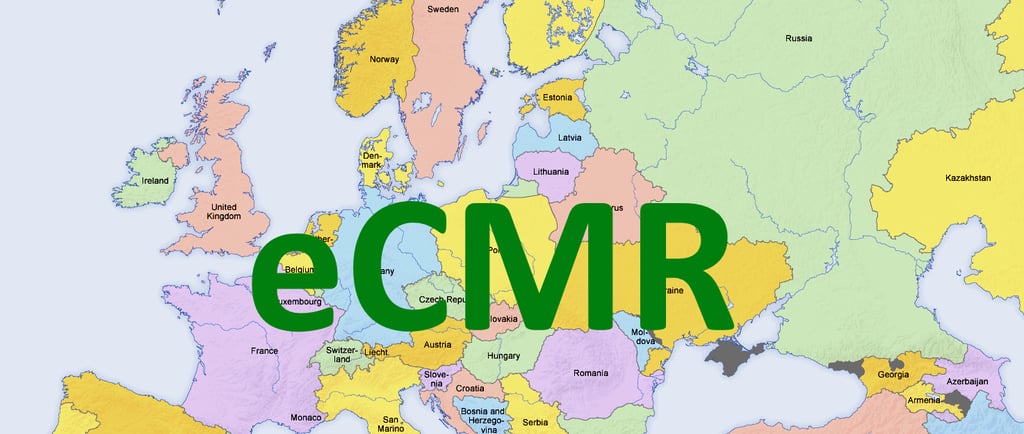How feasible is eCMR in 27 EU member states?
Cargo Sign Product Owner Simonas Niedvaras is conducting research to assess the feasibility of #eCMR in the 27 member states that have already ratified the eCMR protocol.t description.
1/1/20242 min read


Cargo Sign Product Owner Simonas Niedvaras is conducting research to assess the feasibility of eCMR in the 27 member states that have already ratified the eCMR protocol.
So, how do regular logistics operators or parties aiming for digitization determine the current feasibility of eCMR?
Through Cargo Sign's communication efforts and network building research, it has become apparent that there is a sizable ecosystem dedicated to digitizing the EU logistics sector. Numerous parties are pursuing the common objective of achieving paperless logistics in Europe.
One of Europe's largest freight exchange platforms has fully developed eCMR and is prepared to offer this service to a couple of hundred thousand of its customers.
The joint venture eCMR product led by the Open Logistics Foundation, with participation from DACHSER , Rhenus Logistics , and Fraunhofer IML , has also been completed. With a combined turnover of 20 billion euros among the three companies, a significant portion of the logistics sector can now operate digitally. This development also opens up opportunities for subcontractors to join and utilize eCMR while working with these companies https://www.linkedin.com/feed/update/urn:li:activity:7121102918526623744/
Contact with Barry Van Leuven , a representative of the Digi-transit consortium, revealed that the consortium brings together several eCMR providers. It appears that Benelux has a strong foundation in working with digital consignment notes already.
Cargo Sign's eCMR, including a CO2 calculator led by Product Owner Simonas Niedvaras , is approximately 60% developed. Therefore, there is a high probability that the eCMR will be available for pilot testing in the Baltic logistics sector later this year.
Mr. Raoul Wintjes , Head of International Road Haulage | Digitalization at the German DSLV Federal Association for Freight Forwarding and Logistics , referred to a legislative document indicating that the German government already accepts eCMR. This implies that going paperless is now possible in Germany https://www.balm.bund.de/SharedDocs/FAQs/DE/Gueterkraftverkehr/Begleitpapiere.html
Ulrika Hurt , team co-lead of the Digital Transport and Logistics Forum on requirements for electronic freight transport information sharing (eFTI), confirmed that the eFTI dataset shares the same data set with eCMR. Ulrika is actively involved in developing the eFTI ecosystem.
Mr. Rudy Hemeleers , an external advisor to the Luxembourg Government since 2010 on matters related to a Single Window for Logistics, e-CMR, and eFTI, mentioned that the UNECE SC1 group is actively working on legislative matters concerning eCMR.
What do these findings imply?
Digitization enthusiasts are approaching their work from various angles, but do they know each other and realize they are working toward the same goal?
Would collaboration, or at least knowing who else is working on this, speed up Europe's business operators' transition to going paperless rather than waiting until 2026 December?
Perhaps collaboration could help see the whole picture and empower digitization to create more benefits such as:
eFTI/eCMR products for CO2 tracking and reporting for Scope3
Using eFTI in conjunction with freight exchange platforms to allocate transport more accurately can help avoid empty miles and the resulting CO2 emissions, as sought in the ADMIRAL project.
ICS2 is the European Union's IT system designed to collect safety and security data about goods entering the Union, operating under the same model. Perhaps the eFTI4EU Project consulting-developed product could be advantageous in this regard.

